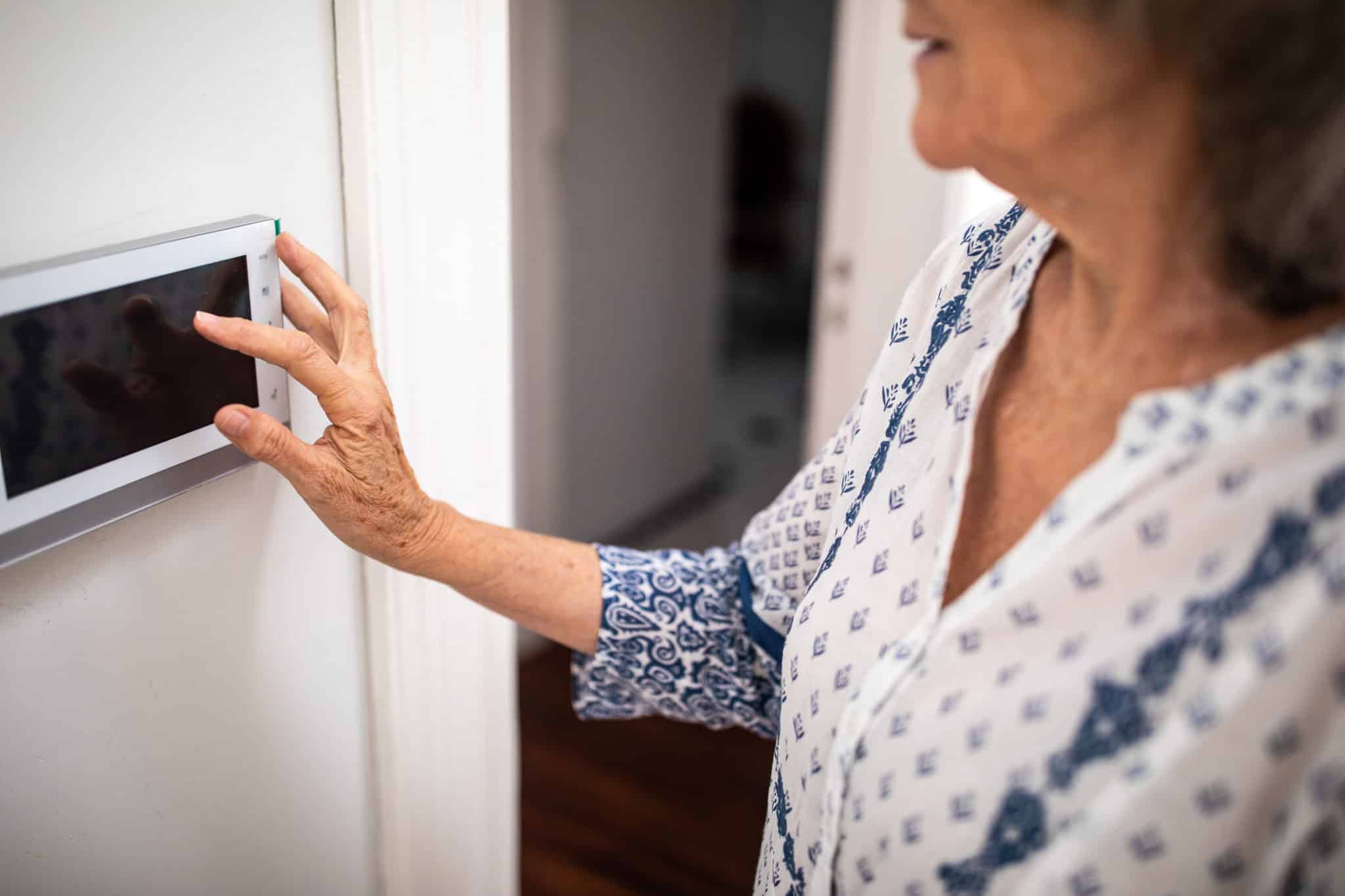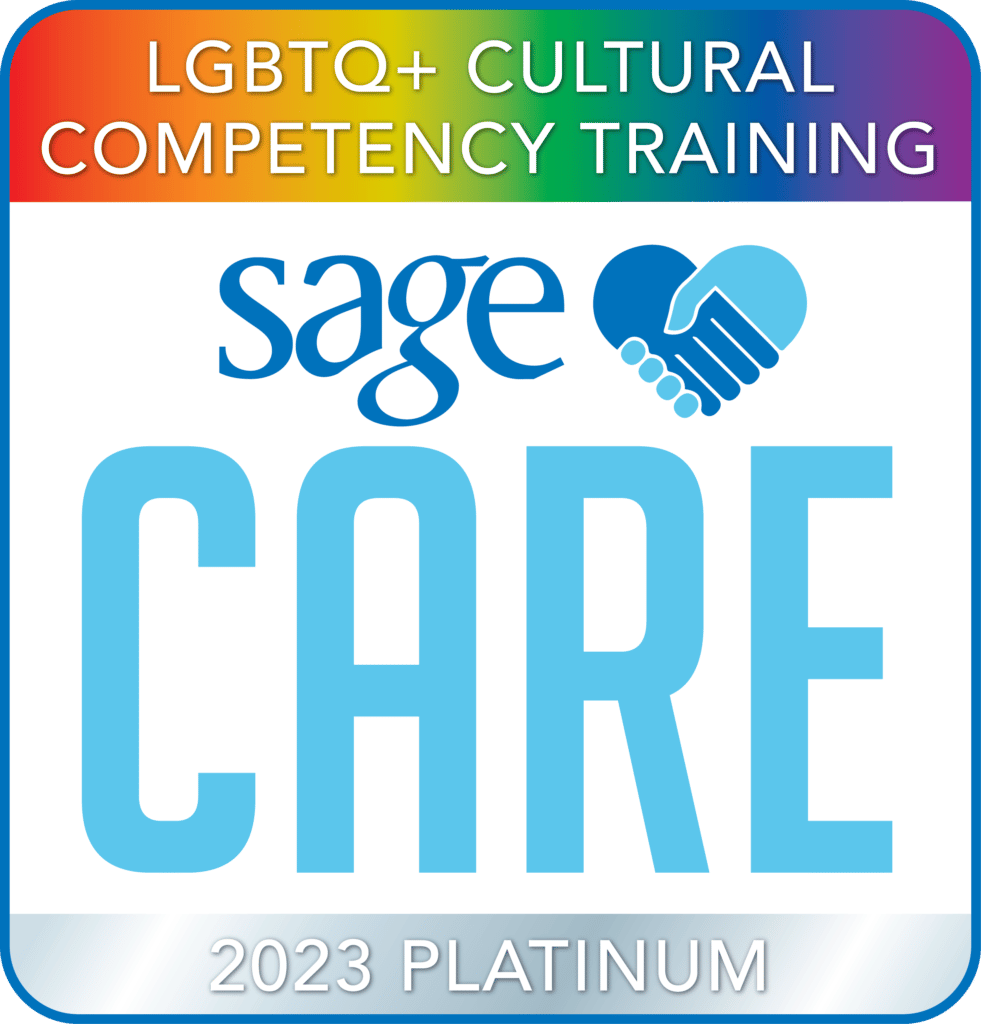Home Safety Tips for Older Adults

“I’ve fallen and I can’t get up!” We’ve all seen that 80s commercial for LifeAlert, that is now a viral meme people poke fun at. However, LifeAlert did something right because you can say that infamous line to almost anyone and they immediately know it’s for a fall alert system. Despite their comedic claim to fame, senior falls happen more often than not and can lead to more serious issues down the road.
It’s so important for seniors to take home safety precautions to prevent unnecessary injury and ensure their independence for as long as possible. Taking the necessary steps towards home safety, combined with professional in-home care services, can help older adults age in place more successfully. Here are some essential home safety tips for seniors from our team of in-home caregivers in New Jersey.
#1 – Secure home doorways. The risk of stumbling and falling is high around doorways, as many homes have steps, raised flooring between rooms, or a raised section where the door has been fitted. We don’t usually notice these in our daily lives, but for seniors who are more likely to shuffle their feet or are unsteady on their feet, these can become dangerous tripping hazards. A safety or home proofing expert will be able to flatten troublesome doorways, install safety railings or add ramps where needed.
#2 – Install bathroom grab handles and bathing aides. The area that someone is most likely to fall and injure themselves in is the bathroom. Between the risk of wet, slippery tiles and the hard, angular surfaces of this space, a fall in the bathroom can be devastating for an older person. Luckily, they’re also one of the easiest rooms to secure. There is a huge range of bathroom safety equipment available for seniors, from sitting aides that allow seniors to shower easily, to installing grab bars near the tub, toilet and vanity. Another good idea is to remove all mats and clutter from this room to make it as open as possible for easy movement, as well as to reduce the risk of tripping.
#3 – Removing tripping hazards. Go through the house and look for tripping hazards that you can either move into storage or secure properly. This includes items like rugs (which can be removed or secured, especially if they are on tile or wooden floors), piles of books and magazines, awkwardly-placed furniture, and clutter. Pay special attention to the areas your loved one uses the most frequently – like the front door, stairs, bedroom, living room, and the kitchen. If they use a walker or walking aide, make sure there are clear pathways that are wide enough to easily accommodate them.
#4 – Create accessible seating. Another good idea is to splurge on some senior-friendly seating that’s comfortable and ergonomically supportive. This can be a set of comfortable living room chairs that are easy to get in and out of (a lot of furniture is very deep or low, which can be a problem), a sturdy bench or chair by the front door that you can rest groceries on or sit on to put on outdoor shoes, shower stools for easy bathing, and kitchen chairs that are the correct height and depth. At the same time, it’s also a good idea to clear out bulky furniture that isn’t being used, takes up unnecessary space and makes it difficult to use a walker.
#5 – Secure the yard. Understandably, a lot of focus goes into making a home safe for seniors, but the yard should also be secured. Especially if your loved one enjoys being outside, gardening or socializing. Make sure stairs are clear and have secure railings in place, and install a ramp if needed. Remove tripping hazards in the main pathways like roots, stepping stones or damaged paving. Make sure their mailbox is easily accessible and that snow and ice is cleared regularly. It’s also important that they have good quality outdoor shoes that are easy to put on and wear.
#6 – Invest in emergency technology. Everything you do to better secure your loved one’s home and prevent falls only reduces the risk of a fall occurring. Accidents can still happen — and when they do, you want help to arrive as quickly as possible. Fortunately, there are different emergency technology options available. Smart home technology, like Alexa, can be voice activated to alert emergency services. There are also wearable tech options like LifeAlert, Bay Alarm Medical, and Freedom Guardian that have features such as fall alerts, medication reminders, and GPS tracking to keep an eye on loved ones who may wander off.
Stay safe at home with our NJ in-home caregivers
United Methodist Communities HomeWorks was developed specifically to provide high-quality, home care for seniors that promote security and independence. Our in-home caregivers utilize the latest emergency technology and home safety methods to ensure your loved one is safe and sound at all times. They also provide senior care services that can be tailored and scaled to meet all the needs of your loved one.
For more information on our senior home care services, please contact us today or visit our website at: https://umcommunities.org/homeworks/elderly-home-health-care-nj/





